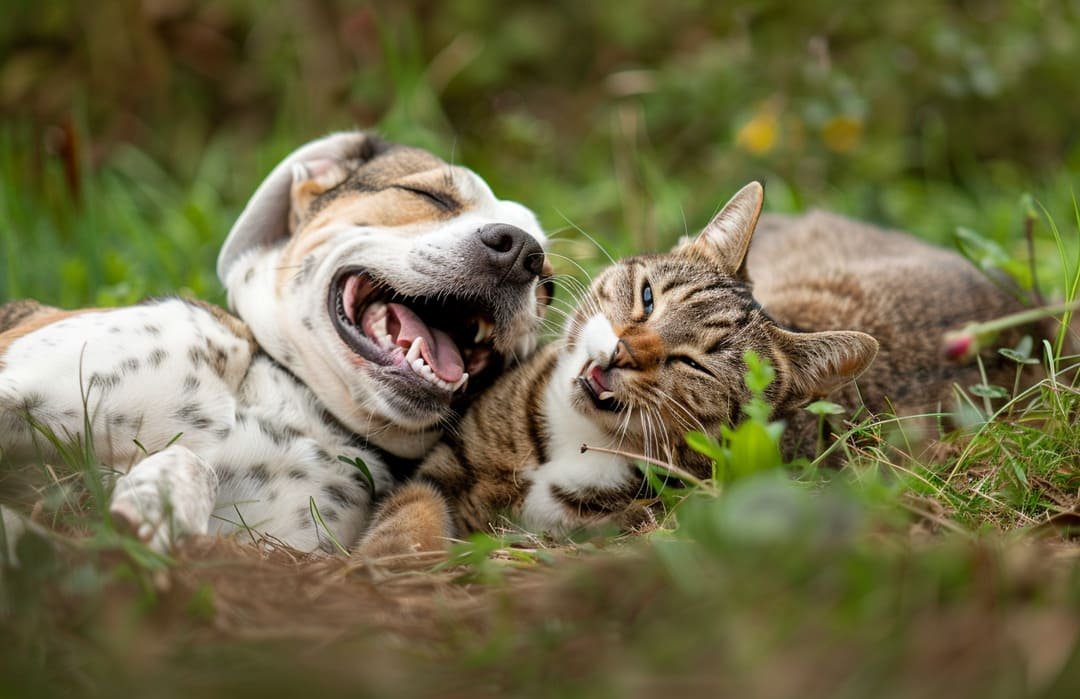Introduction:
Did you know that noticing blood in your cat's poop can be a sign of an underlying health issue that requires prompt veterinary care? Understanding the significance of blood in cat poop and the essential veterinary interventions can make a crucial difference in your feline companion's well-being. Explore the comprehensive guide below to learn about the causes, treatments, and preventive measures for addressing blood in cat poop through proper veterinary care.
Understanding Blood in Cat Poop: Signs and Symptoms
Signs of Blood in Cat Poop
Blood in your cat's stool can be a concerning sight for any pet owner. Here are some common signs to watch out for:
-
Bright red blood in the stool
-
Dark, tarry stools
-
Straining or discomfort during defecation
-
Changes in frequency or consistency of bowel movements
Symptoms of Underlying Health Issues
Blood in cat poop can signal various underlying health issues that require veterinary care:
-
Parasitic infections such as worms or protozoa
-
Inflammatory bowel disease (IBD)
-
Colitis or gastrointestinal ulcers
-
Feline leukemia virus (FeLV) or feline immunodeficiency virus (FIV)
-
Tumors or polyps in the gastrointestinal tract
Remember, early detection and prompt veterinary care are crucial in addressing blood in your cat's poop. If you notice any abnormal signs or symptoms, consult your veterinarian for a thorough examination and appropriate treatment plan.
For more information on cat health and care, visit Royal Canin's guide to cat health.
Understanding Blood in Cat Poop: Common Causes
Causes of Blood in Cat Poop
Blood in cat poop can be an alarming indication of an underlying issue. Some common causes include:
-
Dietary Factors: Abrupt changes in diet or ingestion of foreign objects can lead to gastrointestinal irritation.
-
Parasitic Infections: Intestinal parasites like hookworms or roundworms can cause bloody stools in cats.
-
Inflammatory Conditions: Inflammatory bowel disease (IBD) or colitis can result in blood in the feces.
-
Infections: Bacterial or viral infections in the gastrointestinal tract may manifest as bloody stools.
-
Trauma or Injury: Trauma to the digestive system from accidents or ingesting sharp objects can cause bleeding.
Importance of Veterinary Care
It is crucial to seek veterinary care if you notice blood in your cat's poop to diagnose the root cause accurately. A thorough examination by a veterinarian may involve:
-
Physical examination to assess overall health
-
Fecal tests to check for parasites or infections
-
Bloodwork to evaluate organ function and detect systemic issues
-
Imaging tests like X-rays or ultrasounds to visualize the digestive tract
Prompt veterinary intervention can help determine the underlying cause of blood in your cat's stool and guide appropriate treatment to ensure your furry companion's health and well-being.
For more insights on cat health and wellness, refer to Hill's Pet's guide to cat care.
Treatment Options for Blood in Cat Poop
Upon diagnosing the presence of blood in your cat's stool, the next step involves exploring treatment options to address the underlying cause effectively.
Medications and Therapies
-
Antibiotics: Prescribed in cases of bacterial infections.
-
Anti-parasitic Medications: To eliminate parasites causing bloody stools.
-
Anti-inflammatory Drugs: Helps manage conditions like IBD or colitis.
-
Probiotics: Aids in restoring gut health and balance.
Dietary Changes and Supplements
-
Prescription Diets: Specialized diets to address specific digestive issues.
-
Fiber Supplements: Can help regulate bowel movements and improve stool consistency.
-
Omega-3 Fatty Acids: Known for their anti-inflammatory properties.
-
Digestive Enzymes: Assist in better digestion and nutrient absorption.
Surgical Interventions if Necessary
In severe cases where the underlying condition requires surgical intervention, procedures such as:
-
Gastrointestinal Surgery: To remove foreign objects or tumors.
-
Endoscopy: Used for the diagnosis and treatment of digestive disorders.
-
Colectomy: Surgical removal of part of the colon in certain conditions.
For detailed insights and recommendations on cat healthcare products and nutritional supplements, visit Purina's resource on cat health.
Home Care Tips for Cats with Blood in Poop
After receiving veterinary treatment for blood in your cat's poop, providing proper home care is essential to support their recovery and overall well-being.
Monitoring Your Cat's Condition
-
Observe Stool Consistency: Keep an eye on the color and texture of your cat's stool to ensure it returns to normal.
-
Watch for Signs of Discomfort: Monitor your cat for any signs of straining or pain during bowel movements.
-
Track Eating Habits: Ensure your cat is eating and drinking normally post-treatment.
Providing a Stress-Free Environment
-
Create a Safe Space: Offer a quiet and comfortable area where your cat can relax and recuperate.
-
Maintain Routine: Stick to your cat's regular feeding and playtime schedules to reduce stress.
-
Minimize Changes: Avoid sudden changes in the environment that could cause anxiety.
Follow-Up Care and Veterinary Visits
-
Regular Check-ups: Schedule follow-up appointments with your veterinarian to monitor your cat's progress.
-
Medication Compliance: Administer any prescribed medications as directed by the vet.
-
Open Communication: Keep your veterinarian informed of any changes in your cat's condition.
For additional guidance on cat wellness and behavior, refer to PetSmart's guide to cat healthcare.
Preventive Measures for Blood in Cat Poop
Taking proactive steps to prevent the recurrence of blood in your cat's poop is essential for their long-term health and well-being.
Importance of Regular Vet Check-ups
-
Annual Examinations: Schedule routine veterinary visits to monitor your cat's overall health.
-
Fecal Tests: Regular fecal screenings can help detect parasites early on.
-
Vaccinations: Stay up-to-date on your cat's vaccinations to prevent infectious diseases.
-
Discussion with the Vet: Consult your veterinarian about any concerns regarding your cat's digestive health.
Proper Nutrition and Hydration
-
Balanced Diet: Feed your cat a high-quality, balanced diet to support digestive function.
-
Adequate Water Intake: Ensure your cat has access to fresh water at all times to prevent dehydration.
-
Avoid Harmful Foods: Refrain from feeding your cat foods that can upset their stomach, such as chocolate or onions.
Ways to Maintain Your Cat's Digestive Health
-
Regular Exercise: Encourage physical activity to promote healthy digestion and bowel movements.
-
Gut Health Supplements: Consider probiotics or digestive enzymes to support gut flora.
-
Stress Management: Minimize stressors in your cat's environment to prevent gastrointestinal issues.
For expert advice on cat nutrition and health products, visit Chewy's cat health and wellness section.
Frequently Asked Questions
What are the common causes of blood in cat poop?
Blood in cat poop can be caused by various factors such as dietary changes, parasitic infections, inflammatory conditions like IBD, infections, and trauma or injury to the digestive system.
How is blood in cat poop diagnosed by veterinarians?
Veterinarians commonly diagnose blood in cat poop through a thorough physical examination, fecal tests to check for parasites, bloodwork to evaluate organ function, and imaging tests like X-rays or ultrasounds to visualize the gastrointestinal tract.
What treatments are available for cats with blood in their poop?
Treatment options for cats with blood in their poop may include medications like antibiotics or anti-inflammatory drugs, dietary changes, such as specialized diets or fiber supplements, and in severe cases, surgical interventions.
How can I care for my cat at home after blood in their poop?
Home care for cats with blood in their poop involves monitoring their condition for any changes, providing a stress-free environment, and following up with veterinary visits to ensure proper recovery and continued health.
What preventive measures can I take to avoid blood in my cat's poop?
To prevent blood in your cat's poop, it is important to schedule regular vet check-ups, maintain proper nutrition and hydration, encourage a balanced diet and exercise routine, and consult with your veterinarian about any digestive health concerns.


